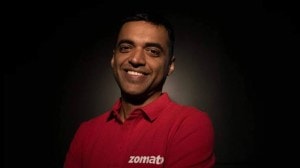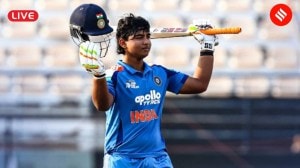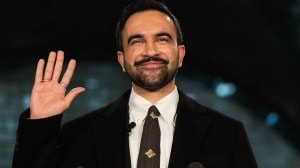Alice in Karachi
Mohammed Hanifs second novel beautifully crafts a doomed,chaotic world of impossible choices.
Our Lady of Alice Bhatti
Mohammed Hanif
Random House
Rs 499
Pages: 256
Is there a connection between the sharp rise in the suffering of a society and heightened,even inspired,creative output? Wars and conflicts have produced more great books than periods of peace and prosperity. The iconic American literature that emerged post World War-II was dominated by Jews Saul Bellow,Norman Mailer,Bernard Malamud,Elie Wiesel,IB Singer and Philip Roth. Many of them became writers,displaced writers,as a result of the Holocaust,that beautifully sad affair for art. A similar literary churning seems to be happening in Pakistan. As the country slides into violence and chaos,Pakistani authors writing in English have begun to illuminate the literary landscape: Mohsin Hamid,Daniyal Mueenuddin and Mohammed Hanif to name a few. The latter has added to that oeuvre with his second book,Our Lady of Alice Bhatti. His first, A Case of Exploding Mangoes,an acidic commentary on the Pakistani army under General Zia-ul-Haq,established him as a rising literary star. This one seals his reputation.
The backdrop is Karachi,a city caught in a deadly ethnic and religious crossfire,much like the protagonists of the book,Alice Bhatti,an underpaid junior nurse in an understaffed welfare hospital,and Teddy Butt,body-builder and goon-for-hire. Shes Christian,a Catholic who joins a squalid hospital teeming with drug addicts and survivors of bloody street battles. Hes a Muslim who haunts the dark side of the city,befriending terrorists and crooks as part of his job with a shadowy paramilitary force. They make an unlikely pair; she treats victims of violence and societys rejects,the people he makes a living from. Its a volatile relationship but not the only one. Theres Senior Sister Hina Alvi,the chief medical officer,Dr Jamus Periera,and Noor,Alices fellow ex-inmate from juvenile prison,who now works at the hospital.
The violence outside,the deathwatch inside,Teddy Butts volatility,Alice with her guts and prison-induced toughness and nothing-to-lose attitude,gives the novel a velocity from the first page and never lets up. Through the grime and grimness,Hanif adds his now familiar brand of dark humour,and scatters gems that light up the novel. She wants to rush headlong towards her destiny and surprise it before it can surprise her, is one and it describes well the novels plot and the pace.
Being a Christian woman in an Islamic state is bad enough in terms of status and destiny,having served a prison term only makes it worse. Faced with that fate,Alice is determined to grab whatever life gives her with both hands and squeeze tightly,even if it means making impossible choices. The first being to become a nurse and deal with the miseries of others,suited to her Christian upbringing,but also to escape from her slum-like colony and her fathers indifference. The second is the sudden decision to marry a most unsuitable boy,Teddy,whose macho but placid exterior hides the hair-trigger volatility inside.
There are other impossible choices she makes that keep the literary pot on the boil she slashes the penis of a powerful VIP with a razor blade she carries in the pocket of her uniform when he tries to force her into fellatio; she decides to marry and then leaves her husband in a matter of days to teach him a lesson,only to return. At times,Alices adventures at Sacred Heart Hospital are almost a parody of the original Alice,except for the emotional violence that permeates the pages of this beautifully crafted novel. Hanif has a masterly way with words and phrases that lend urgency and emotion to the hyper-chaotic world that Alice inhabits.
The dominant theme,however,is a compelling one,how the past catches up with the future and never lets go. In the end,Hanif gives us a novel that draws a very fine line between sanity and madness,violence and religion,love and lust,death and living.
- 01
- 02
- 03
- 04
- 05































